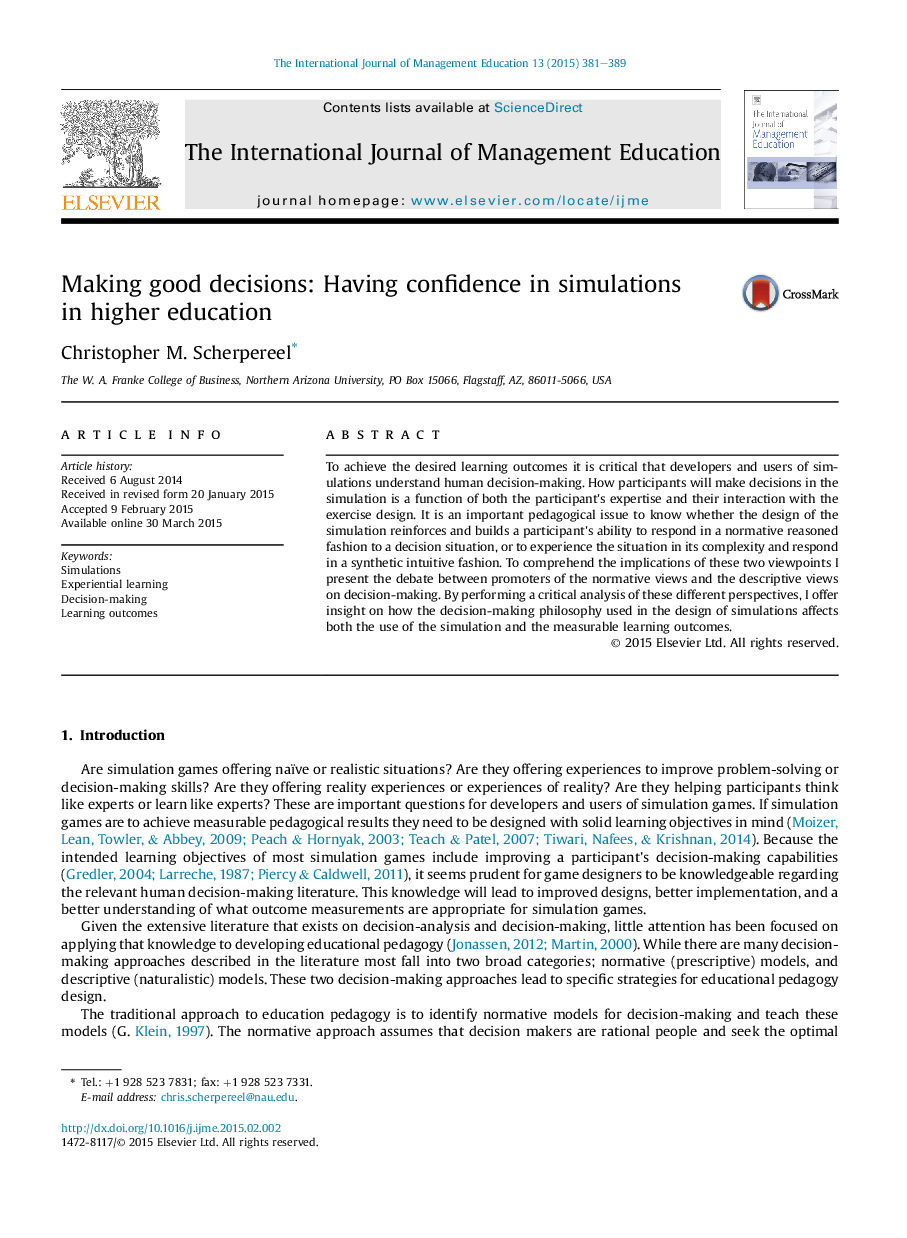| Article ID | Journal | Published Year | Pages | File Type |
|---|---|---|---|---|
| 357346 | The International Journal of Management Education | 2015 | 9 Pages |
•Finding effective design, use, and outcome measurements of simulation games.•Normative and descriptive design perspectives can affect educational pedagogy.•Understanding of human decision-making improves simulation learning outcomes.•Effectiveness of simulation games as pedagogy depends on the design objectives.•Practitioner and empirical support critical for acceptance of simulation learning.
To achieve the desired learning outcomes it is critical that developers and users of simulations understand human decision-making. How participants will make decisions in the simulation is a function of both the participant's expertise and their interaction with the exercise design. It is an important pedagogical issue to know whether the design of the simulation reinforces and builds a participant's ability to respond in a normative reasoned fashion to a decision situation, or to experience the situation in its complexity and respond in a synthetic intuitive fashion. To comprehend the implications of these two viewpoints I present the debate between promoters of the normative views and the descriptive views on decision-making. By performing a critical analysis of these different perspectives, I offer insight on how the decision-making philosophy used in the design of simulations affects both the use of the simulation and the measurable learning outcomes.
